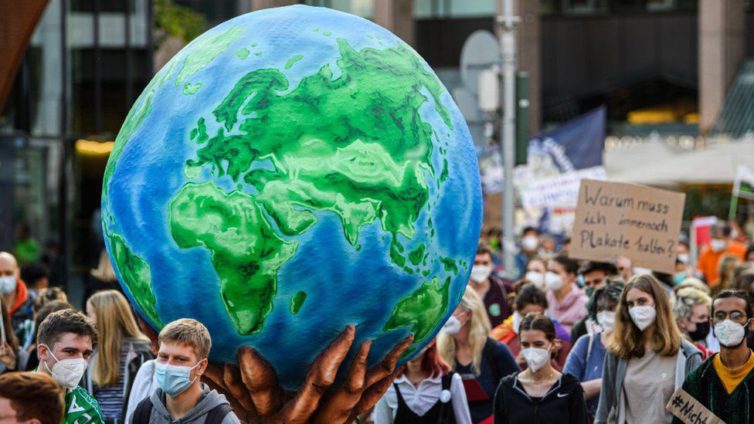As young climate activists from different parts of the world, we closely followed the recent climate conference in Glasgow. But, unfortunately, what we experienced was an atmosphere of omission.
With the COVID19 pandemic ongoing, rife global vaccine inequity, travelling costs, including visa processing time, and overall uncertainty around the planning up to COP26 were fundamentally unfair to attendees from the Global South.
This was an experience we embodied ourselves as Danish and Ghanaian activists. Travelling from Denmark, being fully vaccinated months ago, and having a passport that provided trouble-free access to the UK, was relatively smooth. Despite travelling by train, the trip was more accessible than travelling from Ghana.
There were multiple barriers to attending the conference as an African, issues far and wide related to cost and access inequalities. This is an example of how the COP failed to welcome the African experience to the climate threat.
Meanwhile, as participants were wrapping up their first week at the conference in Glasgow, Perennial Tidal waves hit several residents in the Volta Region of Ghana, displacing about 2000 homes in the Keta Municipality. Affected communities like Abutiakope, Salakope, Kedzikope and Keta Central had their schools, roads, and even cemeteries washed away.
As residents of these communities continue to count their losses, this climate-induced disaster is happening at the time of yet another COP that has failed to deliver on loss and damage finance.
A clear example of the contradiction between promises and action was evident in the US opposition to establishing a new loss and damage fund. At the same time, President Joe Biden claimed to lead by example in supporting developing nations.
This became an apparent discrepancy between what was spoken about in the conference and what was demanded by civil society on the outside (and inside).
As we observed in Glasgow, many people at the frontlines of climate change experiencing loss and damage were not in the negotiations, with many of the most important voices being silenced.
As a Ugandan small-scale farmer at the frontlines of climate change called out, “solutions made without us are not for us”.
COP was held in Europe for the sixth year in a row. Six years where voices from the Global South have had to travel further to be heard. As long as the COP is located in the Global North, the power imbalance is maintained, and voices from the Global South will continuously lack representation.
However, the technocratic nature of negotiations themselves means that far from everyone in Glasgow had the chance to contribute meaningfully to how decisions are made and whose knowledge is valued.
When voices are silenced or just bluntly ignored, COP cannot be a success. This is where we believe that the COP can learn from the grassroots climate justice movement. Although much work still needs to be done, we are working on reaching out and building bridges across different movements and centring the voices of those most impacted.
We cannot solve a crisis like climate change without understanding its ethical dimensions. In order to provide just solutions, the approach should be climate justice and not only climate action.
******
The writers; Nii Noi Omaboe, Helena Moll Bown, Louisa Ellen Mathies are Climate Activists from Ghana and Denmark.
Latest Stories
-
Paris 2024: Opening ceremony showcases grandiose celebration of French culture and diversity
3 hours -
How decline of Indian vultures led to 500,000 human deaths
4 hours -
Paris 2024: Ghana rocks ‘fabulous fugu’ at olympics opening ceremony
4 hours -
Trust Hospital faces financial strain with rising debt levels – Auditor-General’s report
4 hours -
Electrochem lease: Allocate portions of land to Songor people – Resident demand
5 hours -
82 widows receive financial aid from Chayil Foundation
5 hours -
The silent struggles: Female journalists grapple with Ghana’s high cost of living
5 hours -
BoG yet to make any payment to Service Ghana Auto Group
5 hours -
‘Crushed Young’: The Multimedia Group, JL Properties surprise accident victim’s family with fully-furnished apartment
6 hours -
Asante Kotoko needs structure that would outlive any administration – Opoku Nti
6 hours -
JoyNews exposé on Customs officials demanding bribes airs on July 29
7 hours -
JoyNews Impact Maker Awardee ships first consignment of honey from Kwahu Afram Plains
8 hours -
Joint committee under fire over report on salt mining lease granted Electrochem
8 hours -
Life Lounge with Edem Knight-Tay: Don’t be beaten the third time
8 hours -
Pro-NPP group launched to help ‘Break the 8’
8 hours

